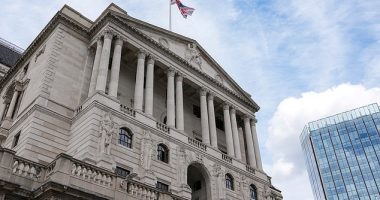BRITS have been taking advantage of the stamp duty “holiday” as part of plans by Rishi Sunak to boost the property market.
Tax on the first £500,000 of a home purchase has been removed thanks to the initiative.
? Read our coronavirus live blog for the latest news & updates
The stamp duty holiday was unveiled as part of the Chancellor Rishi Sunak’s “mini-Budget” in July 2020.
The move came at a time when property prices fell for the first time in eight years after the housing market stalled due to the first coronavirus lockdown.
But how does the stamp duty holiday work and will it be extended? We explain everything we know so far.
When does the stamp duty holiday end?
The stamp duty holiday is due to expire on March 31, 2021 although there have been calls to extend it to avoid 100,000 property sales from falling through.
What is stamp duty?
STAMP duty land tax (SDLT) is a lump sum payment anyone buying a property or piece of land over a certain price has to pay.
Up until July 8, most house-buyers in England and Northern Ireland had to pay stamp duty on properties over £125,000.
This was temporarily increased to £500,000 until March 31, 2021 in the government’s mini-Budget in July 2020.
The rate a buyer has to fork out varies depending on the price and type of property.
Rates are different depending on whether it is residential, a second home or buy-to-let, or whether you’re a first-time buyer.
The usual system in England for residential properties means:
- First-time buyers pay nothing on properties below £300,000 (and relief available on properties of up to £500,000)
- You pay nothing if the property costs below £125,000
- You pay 2% if it is worth between £125,001 and £250,000
- You pay 5% if between £250,001 and up to £925,000
- You pay 10% if it is between £925,001 and £1.5million
- You pay 12% on anything over £1.5million
For second homes or buy to let properties:
- 3% on purchases up to 125,000
- 5% on purchases between £125,001 and £250,000
- 8% on purchases above £250,001 and £925,000
- 13% on purchases above £925,001 and £1.5 million
- 15% on purchases above £1.5 million
Stamp duty rates are different in Scotland and Wales.
But hopes of an extension started to fade last month, as The Sun revealed that Rishi Sunak is said to have privately ruled out extending the scheme.
However, property buyers have since been given a boost after reports emerged the Chancellor is considering extending it by six weeks for those who’ve already exchanged contracts.
It would give buyers and sellers until mid-May to complete on the deals.
A third of house sales could fall through if it is not extended, an industry expert warned in December.
In a survey by the Guild of Property Professionals, thousands of homebuyers said they will pull the plug on their deals if it is not extended.
Around a third (31%) said they would very likely cancel their planned move if they had to pay stamp duty, with a further 43% admitting that they would most likely do the same.
Last month a new group of backbench Tory MPs launched a campaign in favour of making the relief permanent to stimulate economic growth.
Will the stamp duty holiday be extended?
Mr Sunak is expected to make an announcement on the stamp duty holiday in the Spring Budget at the beginning of next month.
While an extension isn’t completely off the cards, Mr Sunak is said to be reluctant he looks for ways of paying for the huge Covid bill, which was at nearly £300billion in January.
Although the nine-month stamp duty holiday may have sparked a mini-boom in the housing market, it has cost taxpayers an estimated £3.3billion.
Buyers looking to take advantage of the scheme before the deadline may well have missed their opportunity to get their sale completed in time.
Another industry expert warned in early November that half of house sales agreed from then will miss the stamp duty discount deadline.
This is because lockdown measures and pent up demand for houses has caused the time it takes to buy a property to double, according to data from online mortgage broker Trussle.
Any changes to the stamp duty holiday are likely to come in the Chancellor’s Budget on March 3.
How does the stamp duty holiday help the economy?
The Treasury announced the stamp duty holiday in a bid to breathe life into the property market after it effectively froze during the first lockdown with viewings, sales and moves suspended.
Experts said a stamp duty holiday would encourage more home owners to move, helping to kickstart economic activity in other sectors.
Speaking at the time the tax relief was revealed, Paul Johnson, director of the Institute for Fiscal Studies, told The Times there was a “good chance” that the policy would benefit the economy in the short term.
He said: “The housing market is very thin… Anything which gets it moving would potentially help.”
How much money could you save?
The average house cost £248,000 in England in March 2020, according to the Office for National Statistics (ONS).
If you purchased the average house as a first-time buyer, you wouldn’t have to pay any stamp duty thanks to the relief on homes below £300,000.
But if a first-time buyer bought a property for £500,000, they’d save £10,000 in stamp duty, Peter Gettins of mortgage broker L&C Mortgages, told the Sun.
Home movers who bought the average property for £248,000 would save £2,460 on stamp duty, while Brits buying a second home for the average price tag would save a whopping £9,900.
You can calculate how much stamp duty you currently have to pay on the Money Advice Service website.
The government also has a handy calculator that tells you how much you would pay on a property.
Here’s how you can get on the property ladder with just a 5% deposit by using the new Help to Buy equity loan.
And first-time buyers could find it easier to buy a home, with NatWest and Lloyds bringing back 10% deposit mortgages.
Check out our guide to buying your first home, including how much you can borrow and the help available.
This post first appeared on thesun.co.uk


















